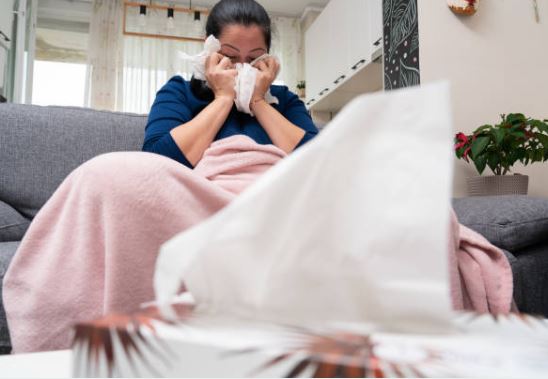The choice of antibiotic to treat pneumonia depends on several factors, including the type and severity of the pneumonia, the individual’s age and overall health condition, and any known antibiotic resistance patterns in the community. The decision on which antibiotic to use is typically made by a healthcare professional based on these factors. Here are some commonly used antibiotics for treating pneumonia.
Macrolides
Macrolide antibiotics, such as azithromycin, clarithromycin, and erythromycin, are often prescribed as first-line treatment for community-acquired pneumonia (CAP). They are effective against most atypical bacteria and some common bacteria that cause pneumonia.
Beta-Lactam plus Macrolide Combination
This combination therapy involves a beta-lactam antibiotic, such as amoxicillin, ampicillin, or ceftriaxone, along with a macrolide antibiotic. It is commonly used in moderate to severe cases of community-acquired pneumonia.
Fluoroquinolones
Fluoroquinolones, such as levofloxacin or moxifloxacin, are broad-spectrum antibiotics that can be used to treat pneumonia, especially when other first-line options are not appropriate or if there is a high likelihood of antibiotic resistance.
Penicillin
Penicillin or amoxicillin may be used to treat community-acquired pneumonia caused by susceptible strains of Streptococcus pneumoniae, particularly in individuals who are not severely ill or have no recent antibiotic use.
Cephalosporins
Cephalosporin antibiotics, such as ceftriaxone or cefotaxime, are often used in hospitalized patients with more severe cases of pneumonia or when there is a higher risk of drug-resistant bacteria.
It’s important to note that the choice of antibiotic should be tailored to the individual’s specific situation, and the final decision should be made by a healthcare professional. They will consider factors such as the individual’s medical history, any known drug allergies or intolerances, local antibiotic resistance patterns, and other relevant factors to determine the most appropriate antibiotic treatment for pneumonia.
FAQS – Symptoms of Pneumonia
Pneumonia can cause a range of symptoms that can vary in severity depending on the type of pneumonia and the individual’s overall health. Here are some common symptoms associated with pneumonia.
Cough – A persistent cough is a typical symptom of pneumonia. The cough may produce phlegm or mucus, which can vary in color and consistency depending on the cause of the infection.
Fever – A high body temperature, often accompanied by chills and sweating, is a common symptom of pneumonia. The fever may range from mild to high-grade, depending on the severity of the infection.
Shortness of Breath – Pneumonia can lead to difficulty breathing and shortness of breath. The person may feel breathless even during rest or experience rapid and shallow breathing.
Chest Pain – Some individuals with pneumonia may experience chest pain, which can be sharp or a dull ache. The pain may worsen with deep breathing, coughing, or movement.
Fatigue and Weakness – Pneumonia can cause extreme tiredness, weakness, and a general feeling of fatigue. This can be due to the body’s immune response to fighting the infection.
Rapid Heart Rate – An increased heart rate, known as tachycardia, may occur in individuals with pneumonia. This can be a response to the infection and the body’s attempt to deliver oxygen to the tissues.
Bluish Lips or Fingernails – In severe cases of pneumonia, a lack of oxygen in the blood can result in cyanosis, causing the lips or fingernails to appear bluish in color.
Sweating and Shivering – Pneumonia may cause episodes of sweating and shivering, especially during fever spikes.
Other symptoms may include headache, muscle aches, sore throat, nausea, and vomiting. It’s important to note that symptoms can vary among individuals and different types of pneumonia. Additionally, infants and young children may exhibit different symptoms such as difficulty feeding, irritability, and rapid breathing.
If you suspect you or someone else has pneumonia or are experiencing concerning symptoms, it’s essential to seek medical attention for proper diagnosis and treatment. A healthcare professional can evaluate the symptoms, perform necessary tests, and recommend appropriate treatment options.



